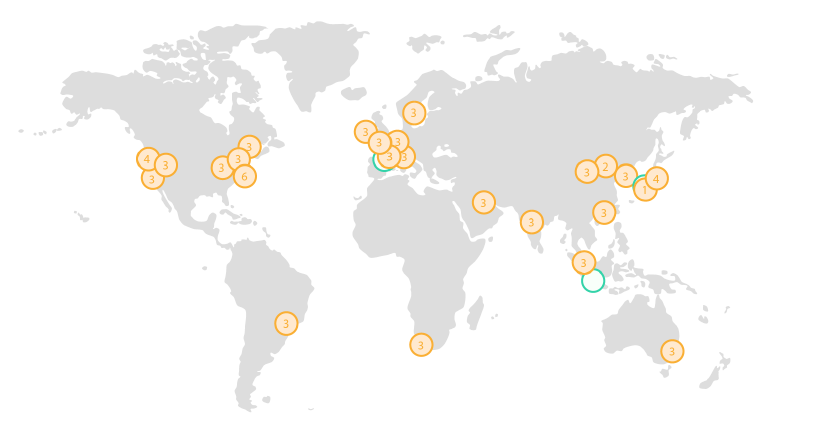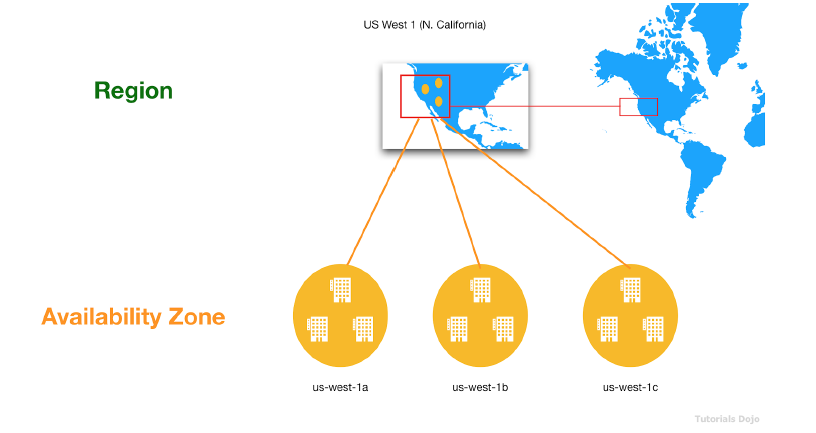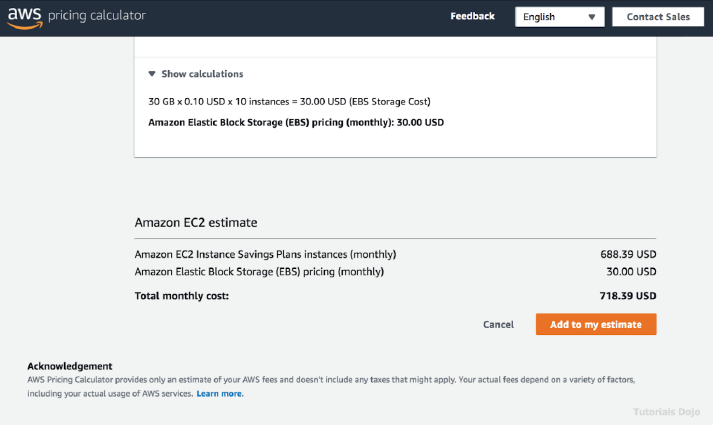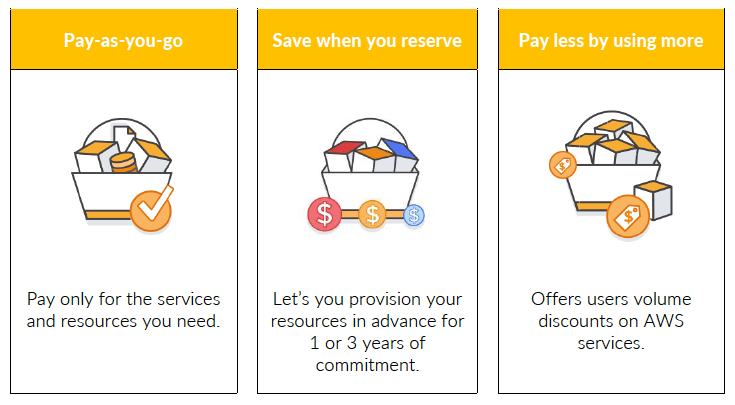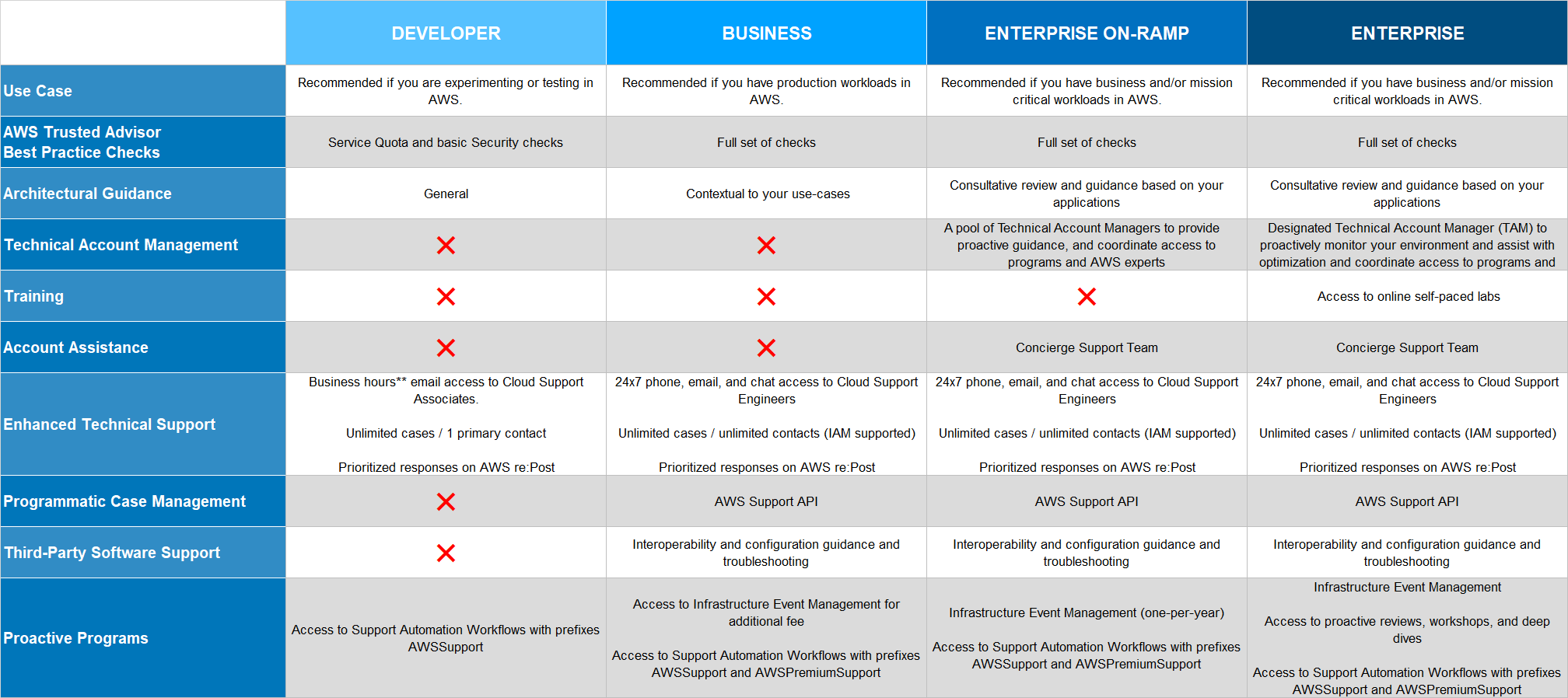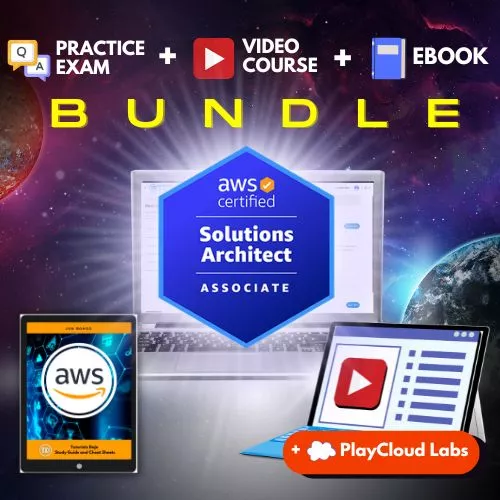Last updated on January 23, 2024
In 2006, Amazon launched its own IT Infrastructure Services called Amazon Web Services. AWS is a cloud platform where you can create, build, and deploy applications. The different AWS services can be accessed over the Internet and it provides premium support plans to help companies run their business applications and workloads on the cloud.
Amazon Web Services also has the biggest market share in the cloud industry and has the most extensive global cloud infrastructure in the world.
AWS Global Infrastructure
The Cloud Infrastructure of AWS is built around:
Regions – provide multiple, physically separated, and isolated Availability Zones which are connected with low latency, high throughput, and highly redundant networking.
Availability Zones – consist of one or more discrete data centers, each with redundant power, networking, and connectivity, housed in separate facilities.
Local Region – is a single datacenter designed to complement an existing AWS Region.
Local Zone – places AWS compute, storage, database, and other select services close to large populations, industry, and IT centers where no AWS region exists today.
AWS Wavelength – allows developers to create applications with ultra-low latencies for mobile devices and end users.
AWS Outposts – brings AWS infrastructure, services, APIs, and tools to the customer’s premises.
Edge Locations – where end users access services located at AWS.
Well-Architected Framework: Six Pillars
Having well-architected systems greatly increases the plausibility of business success which is why AWS created the AWS Well-Architected Framework. This framework is composed of six pillars that help you understand the pros and cons of decisions you make while building cloud architectures and systems on the AWS platform.
Operational Excellence – Run and monitor systems to deliver business value and to continually improve supporting processes and procedures.
Security – Protect information, systems, and assets while delivering business value through risk assessments and mitigation strategies.
Reliability – Recover the system from infrastructure or service disruptions, dynamically acquire computing resources to meet demand, and mitigate disruptions such as misconfiguration or transient network issues.
Performance Efficiency – Use computing resources efficiently to meet system requirements, and to maintain that efficiency as demand changes and technologies evolve.
Cost Optimization – Avoid or eliminate unneeded cost or suboptimal resources.
Sustainability – Increase efficiency across all components of a workload by maximizing the benefits from the provisioned resources.
How does AWS Pricing Work?
With AWS, you can estimate your monthly costs using the AWS Pricing Calculator and compare them to your on-premises environment.
This includes the following pricing model:
With Reserved Instances, you can save up to 75% over equivalent on-demand capacity. When you buy Reserved Instances, the larger the upfront payment, the greater the discount.
- All Upfront lets you pay for the entire Reserved Instance term with one upfront payment. This option provides you with the largest discount compared to On-Demand instance pricing.
- Partial Upfront allows you to make a low upfront payment and are then charged a discounted hourly rate for the instance for the duration of the Reserved Instance term.
- No Upfront does not require any upfront payment and provides a discounted hourly rate for the duration of the term.
For new accounts, AWS Free Tier is available for limited usage of AWS products at no charge for 12 months since the account was created.
Support Plans
With hundreds of services and features, AWS provides a combination of various tools, technologies, programs, and human resources to proactively help their customers. AWS offers various support plans that customers can choose from based on their needs.
AWS has 5 different Support Plans:
- Basic
- Developer
- Business
- Enterprise On-Ramp
- Enterprise
The Basic Support Plan is already available to all AWS customers by default and is free of charge. It also offers support for account and billing questions including requests for service limit increases.
Comparison of AWS Support Plans
You can also choose a type of AWS Support Plan based on your production workload. If you are only experimenting, testing, or doing a Proof of Concept (POC) in AWS, it is recommended that you choose the Developer plan. If you have production workloads running in AWS, it is suitable to opt for the Business plan. Lastly, if you have mission-critical workloads, it is better to stick with an Enterprise plan because it provides the most efficient response times to support your systems.
Essential AWS Services
Compute
- Elastic Cloud Compute (EC2) – is a web service that lets you rent scalable and resizable virtual machines in the Cloud. You can control inbound traffic to an EC2 instance by using a Security Group.
- Lambda – is a serverless computing service that lets you run functions/code without having to manage servers. AWS Lambda supports Java, Go, PowerShell, Node.js, C#, Python, and Ruby code, and provides a Runtime API that lets you run code in a programming language that you like.
- Elastic Kubernetes Services (EKS) – is a fully managed Kubernetes service that lets you orchestrate and manage containerized applications. Control plane upgrades can be done automatically or manually, while worker nodes upgrades can only be done manually.
Storage
- Simple Storage Service (S3) – is a distributed object storage service. S3 stores data as an object and can’t be used as a boot volume for instances. The number of objects that can be stored in an S3 bucket is unlimited.
- Elastic Block Storage (EBS) – is a persistent block storage service that can be used as a boot volume and storage for a virtual machine. EBS volumes are replicated within an Availability Zone making it suitable for mission-critical applications.
- Elastic File System (EFS) – is a fully managed Network File System (NFS) for Linux. EFS is a regional service that allows concurrent connections for instances across availability zones.
Database
- Relational Database Service (RDS) – is a managed relational database service that has support for multiple database engines like MySQL, PostgreSQL, MariaDB, Oracle, and SQL Server.
- DynamoDB – is a serverless NoSQL database service that supports key-value and document data structures.
Networking
- Virtual Private Cloud – is a virtual network environment where you can run AWS resources. The minimum size of subnet that can be created in a VPC for IPv4 is /28 or 14 IP addresses.
- CloudFront – is a content delivery network that can be used to improve an application’s performance by utilizing the AWS global infrastructure to deliver data across the globe. AWS has the highest numbers of Point Of Presence (POP) among the other Cloud Service Providers.
Security
- Route 53 – is a highly available Domain Name System (DNS) service. You can either buy a new domain or import a pre-existing domain on Route 53. Route 53 supports multiple configurable routing policies that you can use depending on the application’s requirements.
- Identity Access Management (IAM) – is an identity and access management service that allows you to create, manage, and control users and access to AWS resources and services.
- Key Management System (KMS) – is a fully managed centralized key management system. KMS is used to handle the encryption and decryption of your data. You can either create a Customer Master Key (CMK) using KMS or import your own key.
- AWS Web Application Firewall (WAF) – is a service that helps protect applications against common attacks like SQL injection or cross-site scripting at a network level by controlling the traffic that reaches your application.
In the next post, we will give you an introduction to Microsoft Azure.
This article is part of our free Journey to Cloud: A Beginner’s Guide eBook. Click here to get a free copy.
Ready to take your learning to the next level? Become a multi-cloud professional by being skilled in AWS, Azure, and Google Cloud Platform. Check out our list of FREE resources here:

